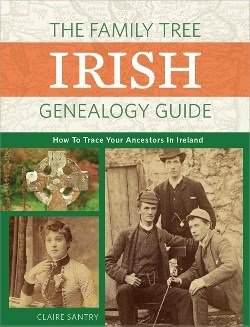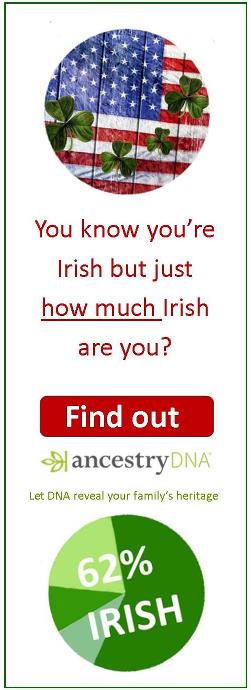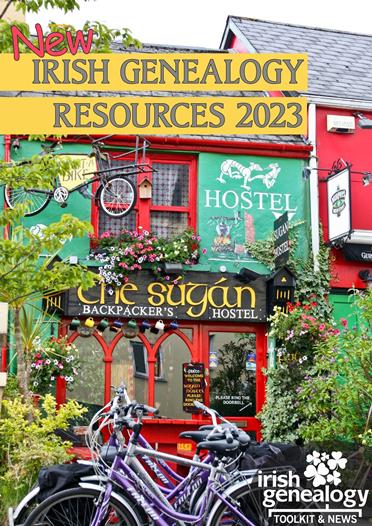- Home ›
- A-Z of Irish Genealogy
Your Irish Genealogy Search - an A - Z
An A-Z guide to help you find Irish family history records, information and advice
This Irish genealogy A-Z will come in handy no matter what stage your research has reached!
In some cases, the details on this page simply redirect you to the relevant section of Irish Genealogy Toolkit. Others provide a brief summary of the resources available and gives you a link(s) to more detailed information, either in this section of the website or on external sites.
This Irish genealogy A-Z will come in handy no matter what stage your research has reached!
In some cases, the details on this page simply redirect you to the relevant section of Irish Genealogy Toolkit. Others provide a brief summary of the resources available and gives you a link(s) to more detailed information, either in this section of the website or on external sites.
You can either -
- scroll down the A-Z page to find the topic you're interested in,
- see the Contents menu in the right hand column (desktops and some tablets) of the page, or
- jump to the A-Z contents menu here.
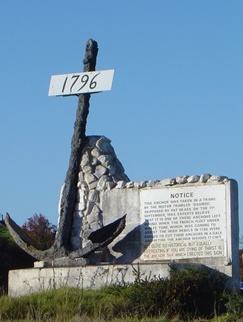
You can either -
- scroll down the A-Z page to find the topic you're interested in,
- jump to the A-Z contents menu here.

Archives & Repositories in Ireland
Listing of Major UK and Irish Archives, plus Specialist Archives
Listing of Regional Irish Repositories (island-wide)
Wicklow Archives and Genealogy Service - a Toolkit Insight feature
Waterford City and County Archives - a Toolkit Insight feature
Have a good look, too, at the ExploreYourArchive website where there's some great features about some of the archives across Ireland and the UK. You'll also find The Archive Directory under the Resources tab useful.
Another handy but under-used directory is the Irish Archives Resource (IAR), a voluntary group supported by the Archives and Records Association (ARA) and University College Dublin. It publishes a free online database which allow users to locate archives that are relevant to their research and to view comprehensive and standardised archive descriptions.
Best' or 'Top' listings websites - recommendations
To help new family historians, this Toolkit has a number of 'Best for' or 'Top 5' listings of websites where I've recommended specific sites for particular purposes. Some have a general or wide-ranging purpose, some target specific themes. The pages are located on this website wherever they seemed most appropriate for the reader, but they may not always be too obvious!
To simplifly, then, here are the listings:
Top 10 free websites for Irish genealogy: The key word here is 'free', although in Irish family history terms, these tend to be the bigger and more mainstream collections.
Top 5 pay-to-view Irish genealogy databases: As most of the major databases are free, you don't need too many subscriptions for Irish genealogy!
Best genealogy sites for local research: The genealogy sites in this list have information and/or records about specific localities, whether that be at county, town, parish or district level. Not all areas are covered.
Best sites for learning about places: This short list of websites includes those that help you to learn about places - their history, language, local big-wigs and others with civil responsibilities, and general services (markets, court sessions, fairs, main coach timetables, health etc); maps; identifying the local administrative land divisions; finding links to sites holding local information and records. Whichever area you're targetting, you should find useful info on these sites.
Best sites for Northern Ireland genealogy: Free or not-entirely-free websites that specifically target family history research in Northern Ireland.
Birth & Baptism
Ireland's birth records and birth certificates (civil registration).
See also Church Records below.
Cemeteries
See Death below.
Census of Ireland
Unfortunately, the censuses taken in the 19th century were almost completely destroyed; only a small number of 1821–1851 Irish census fragments survive. This great tragedy is the reason many people find their Irish genealogy search difficult. However, the 1901 and 1911 censuses survive, complete.
Full details are in the Irish census section of Irish Genealogy Toolkit, along with information about later 20th century population surveys such as the 1926 census (Republic only), which will be released online in April 2026, and the 1939 National Register (Northern Ireland only).
A number of specific population surveys were carried out in the 18th and 19th centuries, often across a more localised geographical area or distinguishable group of people. Many of these also survive. These collections are known as Ireland's census substitutes.
Church records
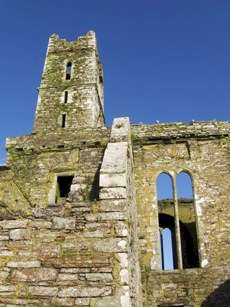 Timoleague Church, Co Cork.
Timoleague Church, Co Cork.Church records include records of baptisms/christenings, marriages, and burials. These records were created in Parish Registers and constantly updated as births, weddings and deaths occurred.
For Irish genealogy research, church registers can be a wonderfully rich source of information but, as family historians soon discover, there are many problems to overcome. The most obvious is that a huge number of records do not survive.
An 1876 law demanded that all Church of Ireland parish registers be sent to the Public Record Office in Dublin for safekeeping. This law was amended in 1878 to allow parishes with good storage facilities to retain their records, so not all parish records were sent to Dublin, and others were copied before being sent.
Church records include records of baptisms/christenings, marriages, and burials. These records were created in Parish Registers and constantly updated as births, weddings and deaths occurred.
For Irish genealogy research, church registers can be a wonderfully rich source of information but, as family historians soon discover, there are many problems to overcome. The most obvious is that a huge number of records do not survive.
An 1876 law demanded that all Church of Ireland parish registers be sent to the Public Record Office in Dublin for safekeeping. This law was amended in 1878 to allow parishes with good storage facilities to retain their records, so not all parish records were sent to Dublin, and others were copied before being sent.
 Timoleague Church, Co Cork.
Timoleague Church, Co Cork.This was just as well, because those enjoying 'safekeeping' in Dublin were destroyed in a fire in 1922.
Most of those that had not been sent to Dublin survive, although not all under one roof. They are rather scattered, so tracking down a particular register, or a copy of it, can, sometimes, be troublesome.
Roman
Catholic registers also survive (with a small number of exceptions),
but they don't generally date back much beyond the 1820s. Some don't
even start until the second half of the 19th century. Older registers, especially those from more rural parishes, were often in Latin.
See the Church Records section of this site for details of Presbyterian, Roman Catholic, Methodist, Protestant and Quaker records.
Civil Registration
The Irish civil registration section of this website provides for comprehensive understanding of how these records will aid your Irish genealogy search, where you can find the resources you need, both online and offline, and how to use them. Here is a brief summary of the pages available:
The Irish civil registration system - an introduction, summary and main menu of pages
Using the Irish civil registration indexes - a brief history of the indexes and registers; how they are compiled; arrangements of indexes; how to create the GRO Index reference.
Search the Irish civil registration indexes - Indepth descriptions of online and offline resources providing access to the indexes.
Tips for searching IrishGenealogy.ie - the official online civil registration index with links (for some years) to images of register entries. Tips for success. How to locate/create
Maps of Ireland's civil registration districts - (Superintendent Registrars' Districts) and lists of the names of the districts, by county.
Northern Ireland civil registration records - The General Register Office of Northern Ireland has an efficient online facility for searching historical events that occurred in the six counties.
Counties
Alphabetical list and introduction to the 32 historical counties of Ireland.
Court and crime records
Court records can be extremely useful for Irish genealogy research, often revealing surprising or colourful anecdotal information. They may also, on occasion, provide rich genealogical information – names of parents, siblings or children, or clarify where a family was living at a particular moment in time.
Online collections have helped to raise awareness of the value of the records, and you'll find full details and advise on using them in the following pages on this site:
- Irish Petty Sessions Court
- Prison registers
- Landed Estate Court rentals (also known as the Encumbered Estates Court)
- The 18th and 19th prisons system in Ireland
Death
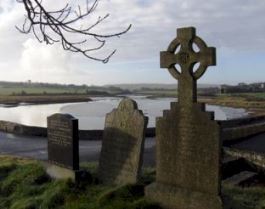

There are a number of sources of death records: civil death records, which started in 1864, church burial registers (patchy, at best), newspaper death announcements and obituaries, and headstones. A huge number of mainly volunteer-led websites also now exist to hold details of graveyards and inscribed headstones.
- Irish death records - civil registration
- Irish burial records, funeral registers, headstone inscriptions etc
- Dublin's Glasnevin Cemetery
- See also Church Records above
Deeds
The Registry of Deeds in Dublin holds memorials of deeds from 1708. The records have long been accessible only to personal visitors. However, in 2019, the Property Registration Authority of Ireland announced the start of a project to digitise the Registry of Deeds collection (see my blogpost on Irish Genealogy News). This may take several years to reach fruition.
A volunteer-led project is gradually creating a free-to-search online index of the records, and has grown considerably - at February 2025 it held the names of more than 620,000 individuals - since FamilySearch uploaded free-to-access images of the memorials.
In January 2025, FamilySearch added AI-created text transcriptions of the images. These transcriptions are searchable. FamilySearch has named the searchable collection 'Ireland, Properties, from 1295 to 1975'.
See the Land & property main page for a brief explanation of the value of deeds to genealogical research.
A fuller feature about Deeds will be published shortly on Irish Genealogy Toolkit.
Emigration from Ireland
To North America
- The coffin ships that brought disease and death with Irish immigrants to America and Canada.
- Canadian immigration history: the arrival of the Irish
- Canadian immigration records: where to find records of your ancestor's arrival and life in Canada
- An overview of US immigration records that may help you find your Irish immigrants in America.
- The journey to Ellis Island, New York. What was it like?
- Top tips for searching the Ellis Island immigration records database.
- Irish-American history to 1845
- Irish immigration to America, 1846 to the early 20th century.
To Britain
- An overview of Irish immigration to Britain.
- Irish immigration to England, and where to find the best genealogy resources.
- Irish immigration to Scotland and where to find the best genealogy resources.
To North America
► The coffin ships that brought disease and death with Irish immigrants to America and Canada.
► Canadian immigration history: the arrival of the Irish
► Canadian immigration records: where to find records of your ancestor's arrival and life in Canada
► An overview of US immigration records that may help you find your Irish immigrants in America.
► The journey to Ellis Island, New York. What was it like?
► Top tips for searching the Ellis Island immigration records database.
► Irish-American history to 1845
► Irish immigration to America, 1846 to the early 20th century.
To Britain
► An overview of Irish immigration to Britain.
► Irish immigration to England, and where to find the best genealogy resources.
► Irish immigration to Scotland and where to find the best genealogy resources.
Land / Geography & Maps / Property
See the Land & property main page for a selection of pages relating to land records. This selection includes several pages exploring Griffiths Valuation, as well as links to pages about Tithe Applotment Books, the 1876 Landowners list, the Landed Estate Court Rentals collection and Estate records.
- Alphabetical list and introduction to the 32 historical counties of Ireland.
- Irish Land Divisions – Genealogists need to become acquainted with land divisions because not all records were collected in the same way.
- Maps: Knowing your way around Ireland can be very useful for genealogy research. To help you along the way, get to grips with some basic details about Ireland's geography and familiarise yourself with relevant parts of the island using these regional and county maps.
- Landed Estate Court Rentals / Encumbered Estate Court Rentals
Marriage records
Irish marriage records (civil registration)
Church records – parish marriage registers
Newspapers
Because they're unindexed, newspapers have only recently become a mainstay of the genealogy scene, thanks to digitisation technology. They can provide rich pickings indeed. They can also be great fun, but you need to keep focused to avoid going off on a tangent as you uncover interesting stories.
There are now many online outlets, but some of the best collections are still held offline, usually on microfilm.
Online pay-to-view collections of historical Irish newspapers
Free online and offline Irish newspaper archives
Northern Ireland
On Irish Genealogy Toolkit, most of the explanations of resources apply across the island of Ireland. Where there may be a difference in availability or application between what is now Northern Ireland and the Republic of Ireland, this is usually set out on individual pages. In just a few instances, the information is so very different that distinct pages have been created, as follows:
Best websites for Northern Ireland genealogy
Northern Ireland - civil registration
Northern Ireland's most popular (first) names
Pension search forms
In the early 20th century, pension applications often required a search to be made of the 1841/1851 censuses to establish the true age of the applicant. The forms completed are known as census search forms or, less precisely, Irish pension records.
Roman Catholic records
The parish registers of the Roman Catholic church are held locally but access is often restricted. Fortunately, most of the surviving registers are accessible online in one format or another.
A number of pages on Irish Genealogy Toolkit explore this important area of research:
Find out what information is contained in the Catholic registers and where to access them
National Library of Ireland's online collection of images
Before you begin: read this overview of Irish church records
The main sources for Irish parish registers (all denominations)
Latin in Irish Roman Catholic registers
Genealogy software
Purchasing software can be a bit of a minefield. There are just so many options available, and probably every genealogist you ever speak to will have their own favourite and won't budge from it! So here's some independent advice about the things you need to think about before you invest in a particular family tree software package.
Special offers, discounts and deals


Keeping up to date with them can be difficult, which means that researchers can easily miss some great deals.
Toolkit has a solution: this page is regularly updated with the current discounts and news of any free access periods on the major databases.
Check out the Irish Genealogy Special Offers page to see what's current. May be a good idea to 'bookmark' or 'favourite' the page, too.
Spinning Wheel Entitlement
In 1796, the Irish Linen Board published its Spinning Wheel Entitlement List (also known as the Flax Growers Bounty or the Irish Flax Growers List), one of several lists created in response to special initiatives by the Government to encourage the production of linen.
Find out more about these lists, and where you can view the 1796 version, at the bottom of this page about conditions for our Mill worker ancestors.
The Family Tree Irish Genealogy Guide
Written by the creator of Irish Genealogy Toolkit and Irish Genealogy News, 'The Family Tree Irish Genealogy Guide' is full of advice, tips and strategies to ease what can be a challenging journey.
Its guidance will be useful to any researcher of Irish heritage, but especially for the target Irish-American researcher who's struggling to work back to Ireland from their immigrant ancestor.
Publisher: Penguin
ISBN: 9781440348808 / 240 pages.
